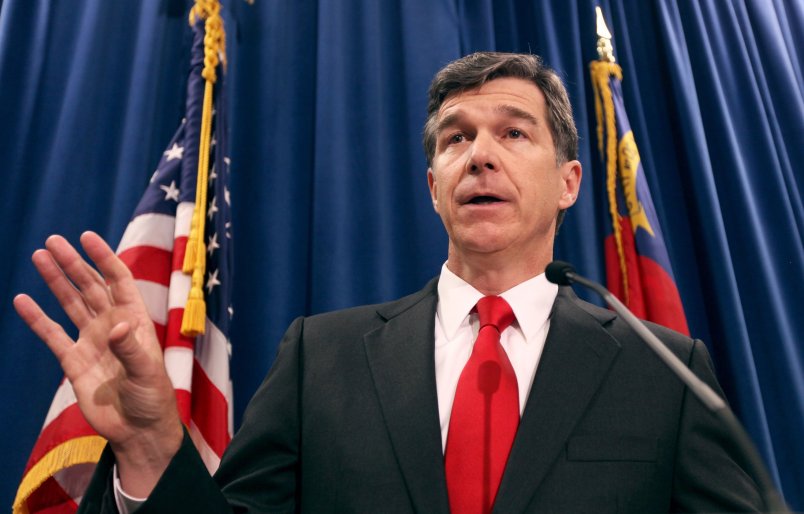RALEIGH, N.C. (AP) — The North Carolina board investigating allegations of ballot fraud in a still-unresolved congressional race prepared to be disbanded Friday under a state court ruling in a protracted legal battle about how the panel operates.
A three-judge state court panel ruled Thursday to allow the state Board of Elections to dissolve at noon Friday, ahead of a scheduled Jan. 11 evidentiary hearing into the 9th district congressional race. It’s not clear when a new election board could be put in place if the ruling stands.
The judicial panel previously found the board’s makeup unconstitutional in a protracted legal battle launched when the Republican-controlled legislature altered the board in 2016 in a power struggle with the Democratic governor. The court had ruled earlier this year to allow the board to remain in place until Friday while it investigates the congressional race. The latest ruling came as lawmakers Thursday enacted a new law to largely restore the board to how it operated before 2016.
It’s not clear how quickly North Carolina Gov. Roy Cooper could appoint a replacement panel under the new law, which takes effect Jan. 31. A higher court also could intervene to allow the current panel to stay in place until the congressional race is resolved.
Cooper on Friday started the process of rebuilding the elections board by asking the state Democratic and Republican parties to nominate by the end of the day members he will appoint. Cooper said he plans to appoint five members of the current elections board to serve until the end of next month — beyond the investigation into the congressional race.
“All of these members have election law experience and an awareness of the circumstances around the allegations involved in the Ninth Congressional District election. They have all cleared ethics and conflicts checks and new members would require extra time to have that process completed,” Cooper said in his letter to state party heads.
But state Republican Party Chairman Robin Hayes said the dissolving elections board’s four GOP members “will not accept appointments to an unconstitutional, illegal sham Roy Cooper creation.” Republicans instead will withhold GOP nominees and wait for the version taking effect Jan. 31 that will be composed of three Democrats and two Republicans.
The state Elections Board has refused to certify the race between Republican Mark Harris and Democrat Dan McCready while it investigates absentee ballot irregularities in the congressional district stretching from the Charlotte area through several counties to the east. Harris holds a slim lead in unofficial results, but election officials are looking into criminal allegations against an operative hired by the Harris campaign.
Harris on Friday asked the elections board to certify him as the winner before it goes out of business so he could be seated in Congress when it convenes next week.
The reorganization threatened to delay the Jan. 11 hearing. Lawyers for Harris and McCready had a Monday deadline to submit requests to the elections board for people they wanted to have compelled to appear and testify at next month’s hearing. But if the current elections board is disbanded without a new one to replace it, the board chairman or vice-chair who could issue the requested subpoenas wouldn’t exist.
Last week, elections board chairman Josh Malcolm said in an affidavit to the three-judge panel that investigative staffers — who can continue working through any reorganization — had collected more than 182,000 pages of materials in response to 12 subpoenas.
The judicial panel’s ruling came the same day the Republican-led General Assembly ended a two-year power struggle with Cooper over elections board control. In 2016, the Legislature voted to upend a law that for a century had given the governor and his or her political party the majority on local and state boards that oversee elections. Cooper sued and eventually won.
The legislation passed into law Thursday by overriding Cooper’s veto — issued for other provisions in the bill — largely returns elections, ethics enforcement and lobbyist reporting to how they were before Republican lawmakers changed them on Jan. 31.



